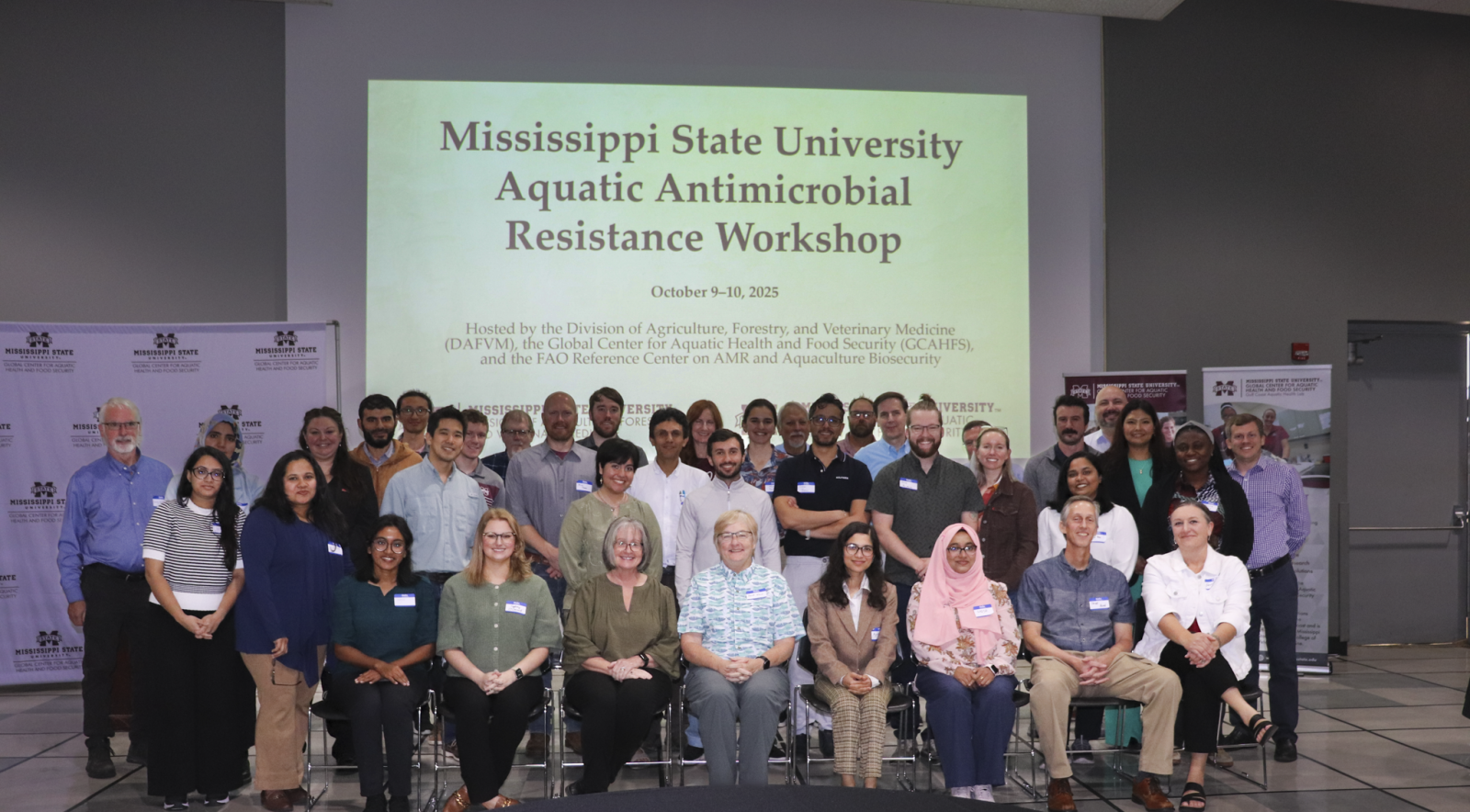MSU strengthens leadership in aquatic health with antimicrobial resistance workshop
Contact: Laura Zseleczky
STARKVILLE, Miss.—Mississippi State University is advancing research, education, and partnerships that make a positive impact on local waters to global food systems through its second annual Aquatic Antimicrobial Resistance Workshop.
Hosted this week by the Global Center for Aquatic Health and Food Security and the Division of Agriculture, Forestry, and Veterinary Medicine, the program builds on the success of last year’s inaugural event. The 2025 workshop brought together more than 40 faculty, graduate students and professionals from seven MSU departments, as well as three other universities and private companies to share innovative solutions for combating antimicrobial resistance in aquaculture.

Antimicrobial resistance, or AMR, occurs when bacteria, viruses or other microorganisms evolve to resist treatments such as antibiotics. This poses a major challenge to global food security and public health. MSU’s leadership in addressing this issue is internationally recognized through its designation as a Food and Agriculture Organization of the United Nations Reference Center on Antimicrobial Resistance and Aquaculture Biosecurity, housed within GCAHFS. It received prestigious recognition at this week’s FAO 80th anniversary celebration during the 2025 FAO World Food Forum.
“Being recognized as the nation’s top university in aquaculture reinforces our responsibility to lead on critical issues like antimicrobial resistance,” said Keith Coble, vice president of DAFVM. “This workshop exemplifies how Mississippi State is bringing together diverse expertise to develop practical solutions that support both local producers and global food security.”
Participants in this year’s event represented a broad cross-section of expertise, including animal and aquatic health, microbiology, chemistry, environmental science and food systems. A mix of oral presentations, panel discussions and student posters covered emerging research on antimicrobial resistance detection and monitoring, responsible antimicrobial use, biosecurity strategies, and the role of partnerships in improving aquatic animal health.
“This workshop promotes innovation and collaboration,” said Fernando Yamamoto, assistant research professor at MSU’s Delta Research and Extension Center and a member of the FAO Reference Center’s Technical Working Group. “It brings together scientists, students and industry leaders to transform research into tangible outcomes that enhance aquatic health and ensure safer food for communities worldwide.”
Recently ranked No. 1 internationally by ScholarGPS among universities for aquaculture, Mississippi State continues to teach future industry leaders and strengthen its role as a trusted partner in global food and agriculture research.
“Through workshops like this, we’re not only advancing scientific understanding of antimicrobial resistance,” said Yamamoto, “but also meeting the goals of sustainable aquaculture and making a difference for farmers and consumers here in Mississippi and around the world.”
To learn more about the GCAHFS, visit www.gcahfs.msstate.edu. More information on the FAO Reference Center on Antimicrobial Resistance and Aquaculture Biosecurity is available at www.gcahfs.msstate.edu/projects/fao-reference-center-antimicrobial-resistance-and-aquaculture-biosecurity.
Mississippi State University is taking care of what matters. Learn more at www.msstate.edu.